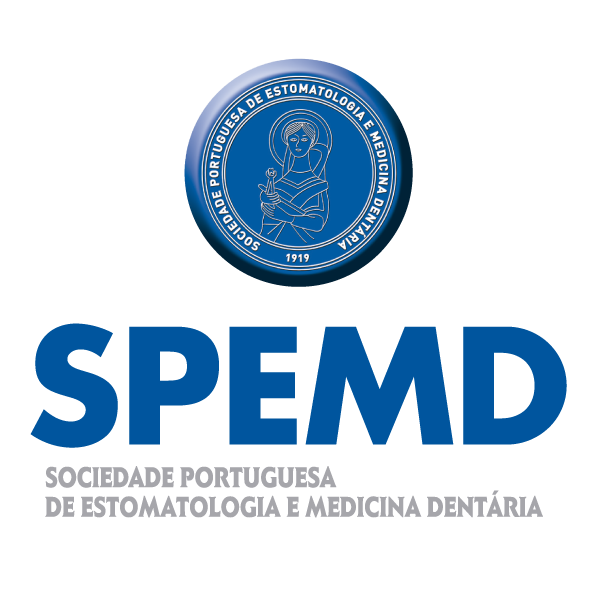
Revista Portuguesa de Estomatologia, Medicina Dentária e Cirurgia Maxilofacial
SPEMD | 2017 | 58 (3) | Page(s) 146-152
Investigação Original
Estado de saúde oral duma população institucionalizada com deficiência profunda
Oral health status of an institutionalized population with profound disability
a Faculdade de Medicina Dentária da Universidade de Lisboa, Portugal
Sónia Mendes - sonia.mendes@fmd.ulisboa.pt
Article Info
Rev Port Estomatol Med Dent Cir Maxilofac
Volume - 58
Issue - 3
Investigação Original
Pages - 146-152
Go to Volume
Article History
Received on 05/08/2017
Accepted on 07/11/2017
Available Online on 17/11/2017
Keywords
Resumo
Objetivos: Avaliar o estado de saúde oral de uma população institucionalizada com deficiência profunda e averiguar a sua relação com potenciais fatores determinantes. Métodos: A população-alvo consistiu nos residentes do Centro de Apoio a Deficientes Profundos Luís da Silva (Borba). A recolha de dados foi realizada através de exame intraoral e aplicação de um questionário aos cuidadores responsáveis pela higiene oral dos residentes. Foram avaliados o índice CPOD, o índice gengival e o índice de higiene oral simplificado e obtidos dados sobre comportamentos relativos à higiene oral, acesso a cuidados de saúde oral, tipo de alimentação e nível de dependência. A análise estatística foi realizada no SPSS, com testes de Qui-quadrado, Mann-Whitney e Kruskal-Wallis (α=0,05). Resultados: A amostra foi constituída por 55 indivíduos, maioritariamente do sexo masculino (63,6%), com paralisia cerebral enquanto patologia mais prevalente que motivou a institucionalização (29,1%). Obteve-se um CPOD médio de 11,15 (dp=10,06), prevalência de cárie de 80%, índice gengival de 1,71 (dp=0,73) e índice de higiene oral simplificado de 1,61 (dp=0,70). A escovagem era maioritariamente realizada bidiariamente (90%) com auxílio dos funcionários (80,4%) e 40% dos participantes nunca realizaram consultas de saúde oral. A maioria dos participantes apresentou alimentação de textura normal (50,9%). As variáveis que contribuíram significativamente (p<0,05) para o estado de saúde oral foram o sexo, a idade, o tipo de alimentação e a capacidade funcional para a higiene oral. Conclusões: As pessoas institucionalizadas com deficiência profunda apresentam um estado de saúde oral precário, necessidade de auxílio para a higiene oral e um escasso acesso a cuidados de saúde oral. (Rev Port Estomatol Med Dent Cir Maxilofac. 2017;58(3):146-152) © 2017 Sociedade Portuguesa de Estomatologia e Medicina Dentária. Publicado por SPEMD. Este é um artigo Open Access sob uma licença CC BY-NC-ND
Abstract
Objectives: To evaluate the oral health status of institutionalized persons with profound disability and to investigate its relationship with potential determinants. Methods: The target population consisted of residents of the Centro de Apoio a Deficientes Profundos Luís da Silva (Borba). Data was collected through intraoral examination, and a questionnaire was applied to the caregivers responsible for the oral hygiene of the residents. The DMFT index, the Gingival Index and the Simplified Oral Hygiene Index were evaluated, as well as behaviors related to oral hygiene, access to oral health care, type of feeding and level of dependence. The statistical analysis was performed in the SPSS software, using chi-square, Mann-Whitney and Kruskal-Wallis tests (α=0.05). Results: The sample consisted of 55 individuals, mostly male (63.6%), with cerebral palsy as the most prevalent pathology that motivated institutionalization (29.1%). A mean DMFT of 11.15 (SD=10.06), caries prevalence of 80%, gingival index of 1.71 (SD=0.73) and simplified oral hygiene index of 1.61 (SD=0.70) were found. Toothbrushing was mostly performed twice a day (90.0%) with the help of caregivers (80.4%), and 40% of the participants never attended oral health appointments. Most of the participants ate normal texture food (50.9%). The variables that contributed significantly (p<0.05) to the oral health status were gender, age, type of feeding and functional capacity for oral hygiene. Conclusions: Institutionalized people with profound disability present poor oral health, a need for oral hygiene assistance and poor access to oral health care. (Rev Port Estomatol Med Dent Cir Maxilofac. 2017;58(3):146-152) © 2017 Sociedade Portuguesa de Estomatologia e Medicina Dentária. Published by SPEMD. This is an open access article under the CC BY-NC-ND license
